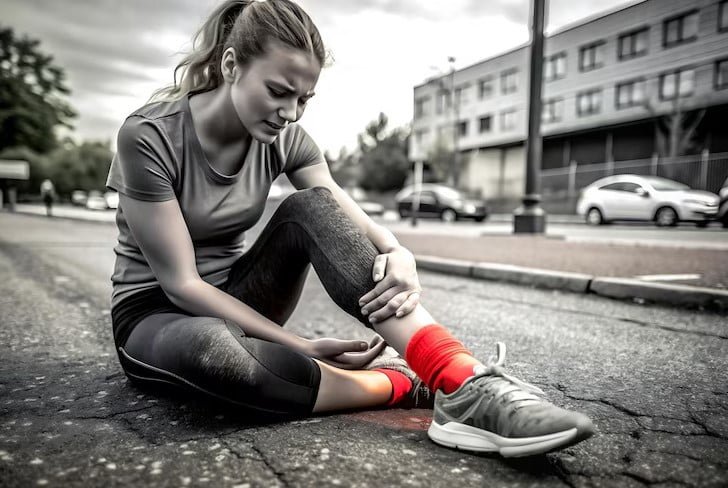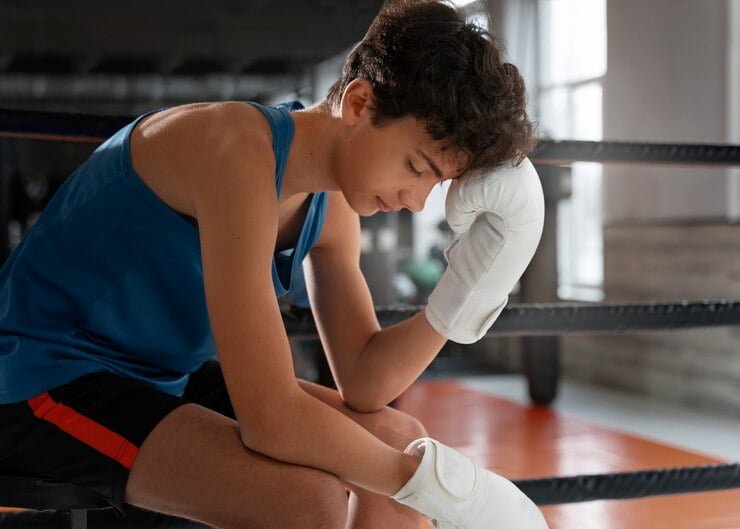
Mental health is considered to be one of the overall aspects of the athletes’ well-being and functioning and accordingly it has a direct influence on the likelihood of injury and the likelihood of recovery from any injury sustained. High stress, the need to succeed, and physical activity are commonplace amongst athletes but all these factors take a toll on one’s mental health leading to anxiety disorders, depression, burnout among other disorders.
Such factors when allowed to develop will not only predispose athletes to incidences of injuries but will also have a negative impact on the recovery process. Hence, it is essential to protect the mental health of athletes so as to minimize injury risks. The goal of this blog is to elaborate on how the mental health of athletes is related to the risk of sustaining injuries and recovering from them, and how to overcome them.
Understanding the Relationship Between Mental Health and Injury Potential
Psychological Factors and Their Effects on the Occurrence of Injuries
There are issues such as competition, training and performing at the highest levels, which render athletes to have a lot of psychological stress. This stress may hinder physical activities including coordination and decision making abilities and as a result, the athletes become more injury prone.
According to literature, wherever people are under stress, such as in personal life, performance or outside stress, athletes are more likely to sustain injuries. Stress brings about tension of the muscles, a loss of concentration and a person being too slow to react, all these increase the risk of one having accidents. In addition, high stress has been correlated with dysfunctional movements and body mechanics as well as low levels of proprioception which in turn correlates with a high rate of sprains, strains and other injuries.

Negative Effects of Anxiety on Sports Performance and Injury
There are negative psychological effects such as anxiety, an ailment which forms a risky factor in sustaining an injury. Depending on characteristics of his anxiety, ones heart might beat fast, breath would be shallow or muscle might be tense which invariably affects their ability to control their movements. Furthermore, mental discomfort leads to negative consequences as well, since it forces athletes to avoid rushing and making decisions during the game efficiently, or even being overly careful.
Likewise, performing certain actions might cause those suffering from anxiety to feel that some of the movements are too risky and eventually lead to some changes in movement patterns that put them at risk of injury for instance a soccer player who goes for a tackle may first make a position to try to take up the ball but avoids doing so completely out of fear that they will get hurt and such positioning may not be the best for the soccer players body and hence the injuries.
Depression and Injury Susceptibility

The other injury which has been noted to fault athletes is depression since it also serves to increase injuries. Athletes in depression or those coping with it will tend to be low in mood, motivation, concentration and energy level, all of which can impair performance and increase the risk of injury. Burnout, which is frequently caused by depression, causes mistakes in physical and mental performance making an athlete more susceptible to falls, missteps, and other mistakes that may lead to an injury.
Depression can also include consequence that create situation lead to risk of injury neglecting self care such as warm up & cooling off before exercising, hydrating, resting between intensive exercises. They also try to play with some discomfort so that there will be no need for treatment. This leads to what should and could be minor injuries to be treated six weeks later than expected.
Mental Health and Injury Recovery
Psychological Factors in Rehabilitation
After an athlete sustains an injury, mental health remains one of the most important aspects for the future recovery. Through treating the individual’s psyche of sportsmen, one can enhance the rehabilitation efficiency, compliance to the rehabilitation measures and the ultimate rehabilitation results.
It has been studied that an athlete who holds a positive attitude towards his or her injury management and rehabilitation will recover much more quickly. Mental ability, hard work, and belief in healing are very vital during rehabilitation. But if such athletes have anxiety, hopelessness or depression, then engaging in physical therapy becomes a hard task, prolonging recovery and causing re-injury.

Fear of Re-Injury
At the time of injury all athletes encounter psychological obstacles that limit their ability to return to play their sport. The fear of re-injury is one of the reasons why injured athletes avoid returning to play. However, there is a high risk of injury-pregnant areas being innocently protected by the athletes thereby devising movement patterns that may be conducive to future injury.
For instance, a basketball player would nurse the injured ankle and therefore quite often refuse to jump and even land on the affected foot, overburdening the healthy leg to the point of injury. Unless psychological help is adopted, some of these fear induced behaviors may remain embedded in one’s psyche for a long time.
The Role of Motivation and Support Systems
Injury inevitably demotivates recovery. Athletes who are assured of support from coaches, teammates, and family tend to remain focused on rehabilitation treatment and even relapse. Feelings of isolation, frustration, or lack of support foster withdrawal from recovery which extends rehabilitation and puts the athlete out of sport for longer.
Recovery is greatly facilitated with supports that include mental health professionals, coaches, and peers. Counseling, quarantine, and mental support are useful for the athletes so that they do not lose their morale during persistent unforeseen situations and they keep progressing with their rehabilitation course.